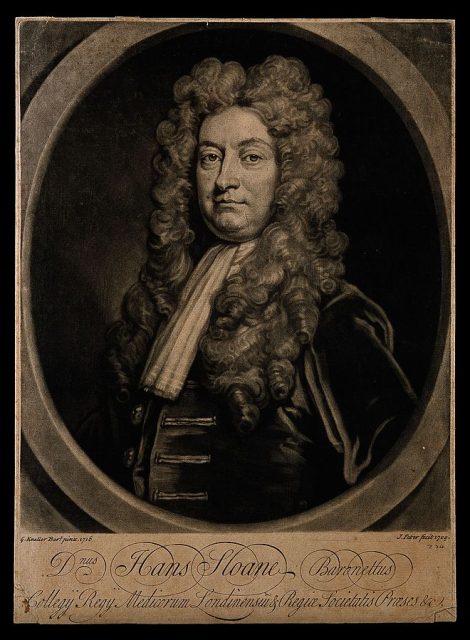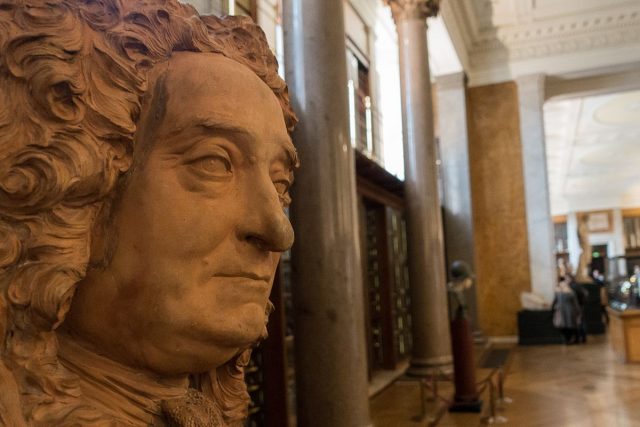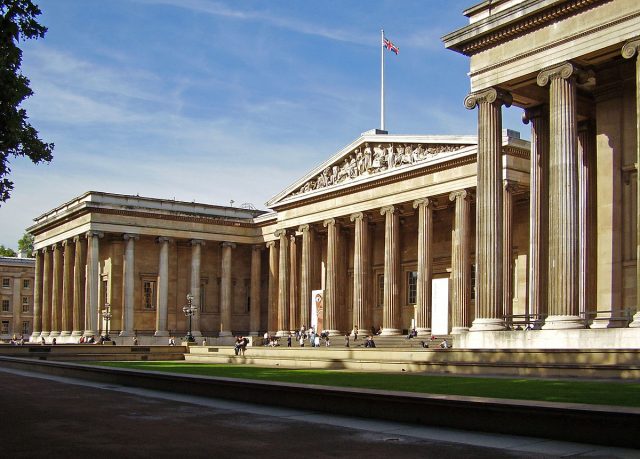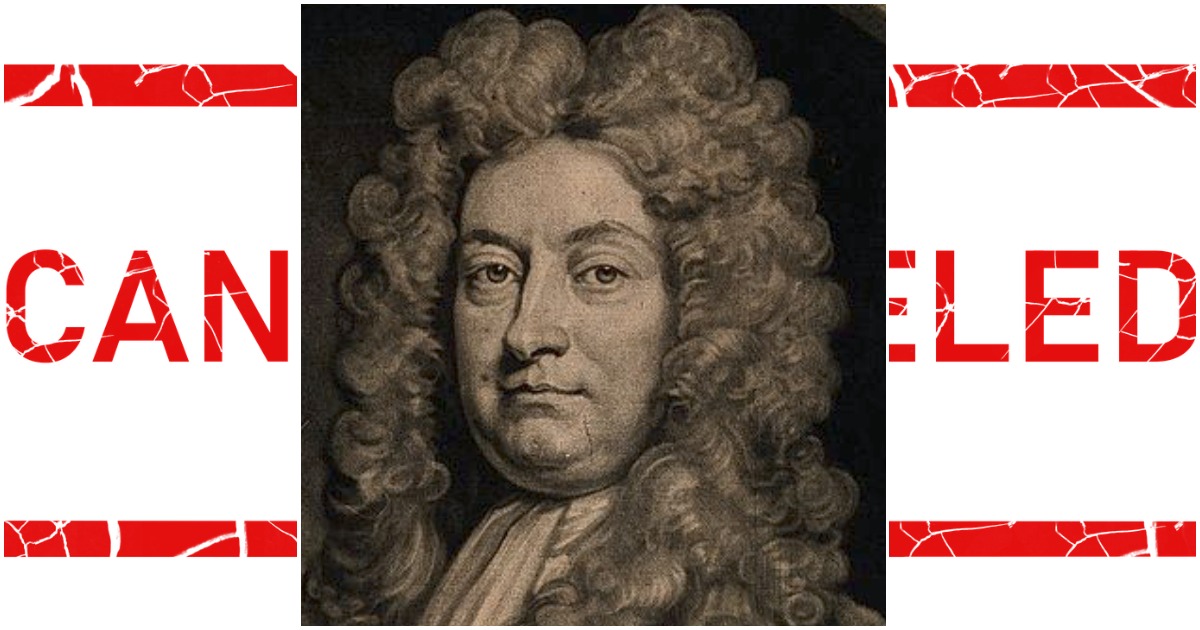A prominent Anglo-Irish figure who was the founder of the British Museum in London has had his bust moved in an ongoing battle over history and Empire. Physician Sir Hans Sloane donated what the institution describes as around 71,000 “natural specimens and artificial curiosities” to George II. Sloane insisted a building be constructed to host the extensive collection, a move which established the British Museum in 1753.
Now a spotlight has been thrown on the matter, after a decision to relocate Sloane’s hefty 3D portrait. It goes from a plinth in the Enlightenment gallery to a nearby display case, with accompanying text providing historical context. “Now Sloane is no longer simply celebrated as a natural history collector,” writes the New York Times, “but labeled a ‘slave owner.’”
Sloane didn’t own slaves, though one could argue that he had strong connections to the trade. Firstly, he worked as physician to the governor of Jamaica – an English colony built on slave labor – between 1687 – 89. Secondly, he went on to wed sugar plantation heiress Elizabeth Langley Rose, whereby his pursuits were funded by the controversial business. People of color from across the globe were captured by the Royal African Company and forced to work for operations such as the one Sloane married into.

Over the course of his career Sloane was an “innovative doctor” according to the Museum website. He “promoted inoculation against smallpox, the use of quinine (a treatment for malaria) and the health-giving properties of drinking chocolate mixed with milk.”
“Openness is really at the heart of this” says Museum director Hartwig Fischer, quoted by the Times. Elaborating in a statement to NBC, he claims the organization is revisiting its past “in collaboration with people from across the globe to rewrite our shared, complicated and, at times, very painful history as equals.”

The British Museum re-opened last week, after being closed for 163 days due to the pandemic. Visitors will not only see a re-purposed Sloane bust, but a new guided tour entitled “Collecting & Empire” that aims to further educate about links between power and prosperity. It’s been emphasized that many items housed at the Museum were obtained legitimately by collectors and scientists.
Sloane’s displacement has provoked a mixed reaction, with criticism coming from all sides. The Guardian reports the move is seen a distraction from “more direct steps to address concerns over race at the institution, such as diversify its curatorial team – it has one black curator at present – and return stolen artefacts”.

Long-standing arguments over whether famous exhibits like the Elgin Marbles or Benin Bronzes were acquired or stolen from their respective countries are raging on. “With its treasure trove of stolen artifacts and historical amnesia over empire, it has a long way to go before we can say its headed in the right direction” says Prof. Kehinde Andrews of Birmingham City University, quoted by NBC.
Britain’s cultural mood has shifted dramatically in recent months, with the toppling of 17th century slave owner Edward Colston’s statue in Bristol seen as a key moment.
The Save Our Statues group said via Twitter the decision showed “disrespect & ingratitude”, adding Sloane’s “generosity has helped preserve so much world history for millions to enjoy.” His contribution to the capital includes the naming of one of its most well-known locations, Sloane Square.
Hartwig Fischer hasn’t distanced himself from the British Museum’s founding father. Reporting on his statement, NBC write that millions had “benefited from Sloane’s ‘radical vision’ of universal public access to a national museum collection.” Quoted by the Guardian, Fischer calls the Museum “probably the world’s greatest place to learn about the history of humankind in all its complexity and richness, diversity and interconnectedness”.
Related Article: British Museum to Return Artifacts Looted from Iraq and Afghanistan Wars
Those who want to venture out and see Sloane’s bust and other sights will have to be patient. 2,000 visitors per day will be allowed into the British Museum, with numbers restricted as per current guidelines…
Steve is a writer and comedian from the UK. He’s a contributor to both The Vintage News and The Hollywood News and has created content for many other websites. His short fiction has been published by Obverse Books.
